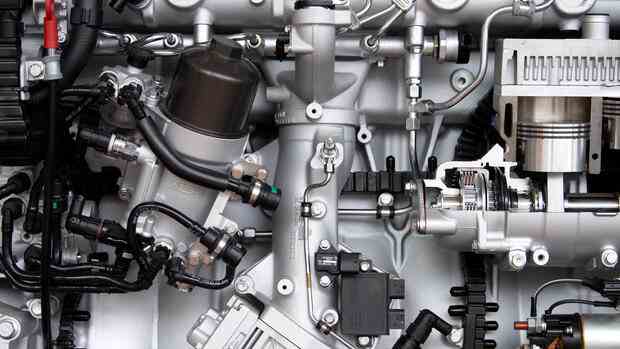Most of the energy in internal combustion engines is converted into heat, only a small part into motion.
(Photo: dpa)
For the EU Commission, the end of the combustion engine car has long been decided – and the combustion engine truck will also become an exception. But until then, tough debates will be held. The German parties CDU, CSU and FDP in particular are opposed to this, which some parliamentary group colleagues in the European Parliament are now even making fun of.
One thing is certain: If Europe takes its climate goals seriously, there is no alternative to this categorical policy. This is not some left-wing activism, but a law passed by a large majority of parliaments and governments, confirmed and given additional emphasis by the Federal Constitutional Court.
>> Read here: Internal combustion trucks are becoming obsolete – the EU Commission is reluctant to ban them
And it is feasible if, firstly, consistent investments are made in wind and solar power and, secondly, if the energy generated is used as efficiently as possible. And this second point is what matters when it comes to the question of whether internal combustion engines have a future.
In no other sector is it so difficult to noticeably reduce energy consumption as in transport. Accelerating a vehicle weighing tons to 100 kilometers per hour takes a lot of energy. Combustion engines are more efficient today than they were 20 years ago. But on the other hand, people drive more and the cars have gotten bigger and bigger.
The savings potential is particularly large there. This is because most of the energy is not used to accelerate the vehicle. Instead, it heats up a block of steel, which then has to be laboriously cooled again with water. Less than a third of the energy is left for propulsion. This is no different with e-fuels than with petrol and diesel.
With all due respect for the engineering that went into the miracle of the internal combustion engine – and with all the disadvantages that electric cars, hydrogen drives and battery production bring with them: this waste must come to an end.
More: Are e-fuels a clean alternative to cars? No, says science
